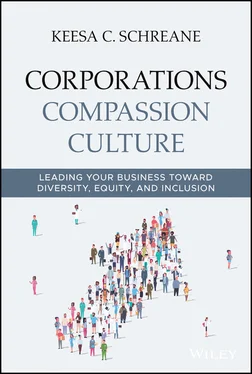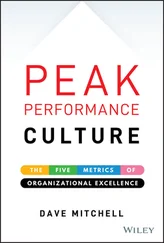I sympathized with her. I let her know I was having my own challenges with the new management. Honestly, though, I brushed off her reported experiences. A lot of turmoil always follows big management turnover. Maybe I was just in denial. Because every shred of my instinct screamed my own career was in trouble.
Things ground along for several more months in an uncomfortable status quo.
I was over two years into the job, when the managing director told me I'd be moving to a different manager and covering a different product. I had neither the background nor the education to market this product. However, she described the move as a better fit for me. I was advised there would be no training on the product, and I was discouraged from reaching out to the businesspeople who managed the product so I could learn from them.
Googling, asking ad hoc questions, browsing websites, and studying brochures was all I had to get up to speed.
I also had new teammates. With them, a palpable frostiness chilled the air. I sensed no enthusiasm for me or my work. But, ever determined to make a good impression, I decided to come in earlier, stay late, and speak up more, coming up with as many solutions as possible in meetings.
If I expected a thaw in the atmosphere, my efforts produced the opposite.
I always participated in non-work-related chats, happy hours, and office banter. But now, one colleague started making a big deal out of the fact that I didn't drink alcohol. Then ribbing got more persistent—at times continuing from happy hour until dinner and beyond. I heard declarations about my presumed lack of social life and lack of friends because I didn't drink.
I endured it, assuming it was only good-natured—if a bit misdirected—fun.
Then the incidents started to pile up.
Once, between meetings, four women from the team were discussing their struggles with weight loss right outside my office. When I got up and walked past them, they pointed out that, since I was thin, I shouldn't have a body complex. Except, of course, for my big butt.
More ribbing. A little indelicate. But nothing to get upset about.
It soon became clear my colleagues were making a proactive effort to avoid me. No one initiated a conversation with me unless it was absolutely necessary for a work-related purpose. To be included at all, I had to insert myself into other people's conversational circles or attempt to kick off a discussion on my own. Which was as arduous as kindling a fire with a flint and some dry leaves.
Then, I went to a holiday house party thrown by one of my team members. Here, the exclusion I'd been sensing, kicked into the highest gear yet. As usual, I walked over to a group, trying to find an opening. When I joined the circle, my colleagues stopped talking—dead cold. They regarded me for a bit and melted away.
By this time, no one was talking with me or engaging with me at work. No one addressed me in meetings or bantered with me outside of meetings. If I asked why I was being ignored, I got a pat answer. “I can't really understand your comments during meetings.” Other times a colleague would act as if I needed an interpreter, turning to another with, “What I believe she is trying to say is . . .”
If you've ever had this kind of experience, you know it can be an elusive one to describe and pin down. Because how do you depict a lack? A something-that-is-not-there? The encouragement that's ABSENT. The nods of interest that DON'T EXIST. The inquiries about your comments and thoughts that NEVER HAPPEN. It's not until these things build up into unmistakable avoidance and silence that you understand SOMETHING is going on.
Like this incident:
A colleague and I bumped into each other when turning a sharp corner near the ladies' room.
“Excuse me,” I said.
She gave me a good, slow look up and down. Then she walked off without a word.
This woman was a terrific conversationalist, always ready with a quip or a punch line. She was not the sort to be caught short by a stumble near the bathroom.
My colleagues seemed to be following some secret rule book with regard to me. And they were following it to the letter.
I decided I needed to do something. I would meet with my immediate manager. I had no job description, no training, and was excluded from the team. But, dwelling on that wasn't going to get me anywhere. I reasoned there must be a way I could support the success of the team and engage professionally (at least until I found another job). Maybe my manager could help.
I approached her with a simple question: What could I do to better serve the team?
“To be honest, Keesa, I really feel your brain synapses don't connect with each other.”
Wow. I sucked in breath to steady myself. Lack of synapses? It was astonishing. I was ready for her denials. For the I-don't-know-what-you're-talking-about comeback. Even for severe criticism of my work. But this woman was saying the problem was with my actual brain .
Of course, I pressed for her to explain what this meant. She went on to clarify that, in her opinion, I didn't understand certain concepts intellectually. This rendered me incapable of producing outstanding, or even adequate, work products. My brain and my neural connections were simply not up to the task.
To my best knowledge, this woman, who held an entire conversation with me focusing on brains and synapses, held neither a neurosurgeon's nor a neuroscientist's degree. What she did hold was my future at that firm—in the palm of her hand. I left her office.
A short time later, it arrived: failure.
I was called into HR. The managing director was there as was the manager with the opinions on my gray matter. They told me my services were no longer needed, effective immediately. They wished me the best, then the managers embraced each other—as if they were the ones who'd gone through an ordeal—and left the room. I departed the building with my possessions.
Nothing had protected me. Not my NYU degree. Not my Series 7 and Series 63 certifications. Not my previous accomplishments at that very firm.
I thought about warnings that elders and friends gave for years that I just hadn't wanted to believe.
“This is just how corporate America is when it comes to people of color.”
“They've been treating Black people like this for years.”
“Folks in charge could care less about people who work for them, especially when they're Black. They only care about making money and looking out for their own.”
Maybe it was all true.
But maybe, I could do something different with the situation. Something different than accepting how things were and just give up.
I took a little while, but I was able to find a way.
I realized I could choose to have compassion for a manager who insulted my mind instead of inspiring my work. So I chose compassion for her. I came to understand that I could choose to forgive my misguided colleagues who had bullied me instead of supporting me. So I forgave them. It dawned on me that I could find a different path, one that would change such realities in the workplace. I could dedicate my future work to improving others' corporate experiences and demonstrate kindness and equality in leadership. So I chose all of that, too.
I made these choices because if I and people like me don't speak about the need for greater compassion and equality in business, those words may never get spoken. If we don't do something about it, those deeds will never get done.
This is why I've written this book.
Sure, there are cruel, cocky leaders who build and operate the world's largest institutions. But kind, committed, and compassionate leaders are also at the helm. Those voices need to be amplified. What those leaders are doing and how they are doing it needs to be documented and understood.
Читать дальше












